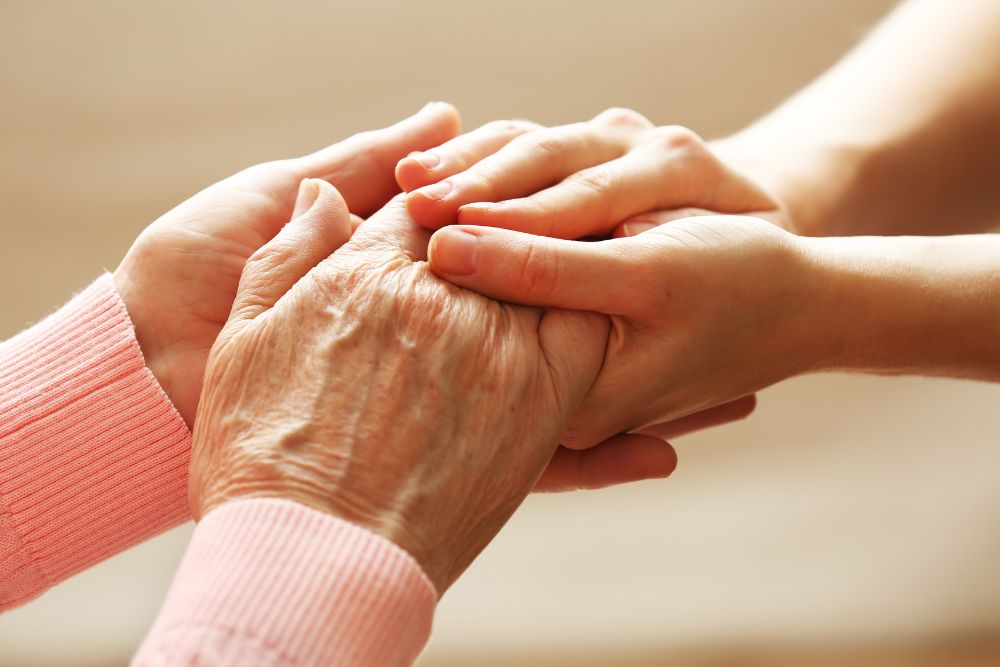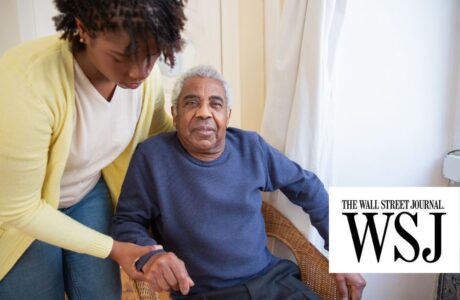
Experiencing Dignity & Comfort in the Final Chapter
By Nancy Daniel, Palliative and End of Life Doula, Nurse
In this post, Empowered Endings team member Nancy Daniel shares a personal story of loss, love, dignity and support.
Family members will often remark on how difficult it is to keep from crying or showing their sadness in front of their loved one who is dying. I encourage them to be honest and open with their feelings, not to overwhelm them but to show respect by not pretending. This openness provides an opportunity to support and comfort one another.
I recall the experience I had with my mother as she was near death. I was beginning my final year of nursing school in Boston, while in Ohio, my mother, at 54, was fighting a battle with cancer she knew she was losing. I wanted to take a year off to care for her, but she was adamant that I should not interrupt my studies. My mother was a nurse and was very proud that nursing had also become my calling. I flew home every other weekend that summer to be with her.
On my last visit with her, she was hospitalized in the very hospital where she had been the Director of Nurses many years before. I spent the entire weekend in her hospital room. She was extremely emaciated, unable to speak, and in horrible pain much of the night. I was her advocate, calling the nurses for more pain medicine and assisting her to adjust her position as needed.
The morning I was scheduled to fly back to Boston, I pleaded with her to allow me to stay. She shook her head, “No,” and she had that motherly look in her eye – the one where you know they mean “No.” She was seated in a recliner in the hospital room as I gathered my things and knelt beside her. I so wanted to hug her, but any movement, it seemed, would increase her pain.
I lost my composure, and tears began to roll down my face. She saw this and patted her lap, encouraging me to lay my head on her lap, which I did. She began to lightly rub my back and stroke my hair as she had comforted me so many times throughout my life. I was still her child, and she could still comfort me in a way no one else could. As I left the room, I recall turning back at the door to say goodbye once more. She looked at me and gave me a wink and a half smile as she often had when she was approving of my behavior as a child or as if to say, “Go on, you can do this.”
The following morning, my father called to tell me she had died early that morning. I will forever treasure the memory of my last moments with her.
I believe that my loss of control showed what she already knew – that this would be our last time together and that this loss would be devastating for me. More importantly, it allowed her to comfort her child in a way no one else could when there was little else she could do. The dignity and comfort of that interaction for both of us would not have been possible had I kept a stiff upper lip.
These moments of dignity and comfort look different for each person. By being honest and open, we can all create more opportunities to experience those moments together, even in the most challenging times.





